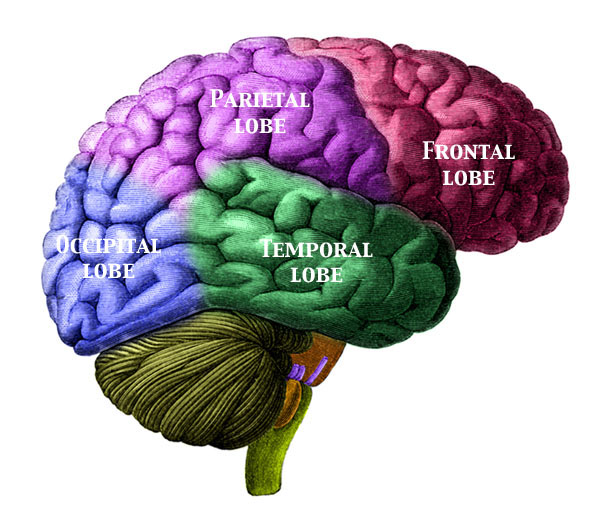Recent events in my life have prompted me to write a little on pain and sorrow. You should know, for starters that I do not use pain and sorrow in a synonymous way. I, of course, consider them to be similar things -they are both forms of unhappiness after all- but at their core they remain noticeably different.
Pain is unavoidable. Pain is the result of living in a fallen world. It comprises everything that happened as a result of Adam and Eve's fall. They are usually things over which we have no control. Pain is sickness, injuries, old age, death, when loved ones stray, the unrighteous choices of others, etc. etc. etc. Ad nauseam. Labeling all the ways that pain can enter into our lives would need a depressingly long list, but the common element in all pain is that we tragically have no power to prevent or contain it.
So what is suffering then? Suffering as I define it, is unhappiness that comes as a result of pain. Basically it is second hand pain, an incorrect reaction to pain. It is unique from pain, however, in that we have a choice in encountering it. Suffering can be anywhere between the two extremes of an obsession with pain or an unwillingness to accept pain. When we become obsessed with pain we deliberately prolong it, rehearsing the pain over and over in our mind. We become like a cow chewing cud all day long, never giving up our misery. We seek to expand our hurt until it becomes a massive sea that consumes us and cuts off all other good and worthwhile emotions. In a talk about anger and holding grudges (both types of sorrow) President Hinkley related a story of a man who I would say was consumed by sorrow:
"It concerns Master Hauchecome, who on market day went to town. He was afflicted with rheumatism, and as he stumbled along he noticed a piece of string on the ground in front of him. He picked it up and carefully put it in his pocket. He was seen doing so by his enemy, the harness maker.At the same time it was reported to the mayor that a pocketbook containing money had been lost. It was assumed that what Hauchecome had picked up was the pocketbook, and he was accused of taking it. He vehemently denied the charge. A search of his clothing disclosed only the piece of string, but the slander against him had so troubled him that he became obsessed with it. Wherever he went he bothered to tell people about it. He became such a nuisance that they cried out against him. It sickened him.“His mind kept growing weaker and about the end of December he took to his bed.“He passed away early in January, and, in the ravings of [his] death agony, he protested his innocence, repeating:“‘A little [piece] of string—a little [piece] of string. See, here it is, [Mister Mayor.]’” (See “The Piece of String,” http://www.online-literature.com/Maupassant/270/.) " source
The great tragedy of this man's suffering is that he chose it for himself and carried around a weight as a reminder of the pain. Though the physical wight was only a piece of string the emotional weight was a crippling burden.
The other extreme of not accepting the reality of pain is equally tragic. We refuse to consciously admit that there is a problem, that there is not cause to mourn or feel pain. It is the stubborn refusal to accept that the world has unpleasant things in it. Those subject to this may even go to great lengths to avoid feeling anything. Drugs, alcohol, video games, and other addictions are often used to dull or hide the pain. But no matter how deeply they bury their pain they still know it is there, like the Poe's Tell Tale Heart, it steadily reminds them of it's presence until it drives them to destroy themselves.
Suffering in not a necessary part of life. it comes from the results of our actions and as such, we can avoid it. We can choose happiness.
So, what are we to do about pain? It is unavoidable and an incorrect response to it just leads to suffering. For starers we can feel our our pain. Pain is a feeling, just like happiness, albeit far less pleasant. As a feeling it demands to be felt. When bad things happen in life we do not need to put on a brave face. Cry if you need to cry, mourn if you need to mourn. Don't condemn yourself for having real emotions. That's what makes you human. Work through your feelings. Do not let them become any more or less than what they truly are.
By confronting our pain we can stop sorrow dead in it's tracks.We can choose happiness.
But then, are we doomed to an eternity of pain that must be humbly endured? Hardly. Pain, as I mentioned before is a result of a fallen world and is a temporary state. Pain is the result of Adam's transgression and through the Atonement of Jesus Christ pain as we know it will one day be nothing but a memory.
Now we have hit on something. In facing our pain we are not alone. Christ took upon himself all our pain and our suffering. He knows it. He bought it with His blood. It's His now. When we feel pain we have the great opportunity to ask Him to release us of it. I don't believe He will just wave a magic wand and make all the bad things go away, He respects us far to much for that. He believes that we are strong enough to deal with pain. The pain is meant to reshape us into something greater, but it will be fleeting. He will guide and instruct you in what you need to know to remove the pain because He believes in YOU.
It is natural to fear pain. It's scary and unpleasant. But to me it is helpful to remember that in the moments leading up to His suffering, Christ was afraid. Looking at the sheer amount of pain He was about to feel for us, He was scared. In perhaps one of them most tender and personal experiences recorded in scripture, The Lord asked his Father if it were possible to avoid the pain. "Saying, Father, if thou be willing, remove this cup from me: nevertheless not my will, but thine, be done."(Luke 22:42 KJV). It was then that he was comforted by an Angel. We have no way of knowing what form that comfort took, but I believe that part of it was reminding Christ what pain does in the long run. It changes us, it makes us grow. I believe that He saw our great potential for change. He knew then that through his suffering He could help ease our pain in great and small ways.
Meditating on the Atonement has helped me through pain both great and small. It has helped my suffering evaporate. That is a huge part of it. Yes it is there to redeem us from death, yes it cleanses us from sin, but it also can heal heartbreak, grief, sorrow, and the effects of a crummy day. In whatever pain or suffering you are going through, Christ stands with you, ready to heal.
Pain and suffering are not pleasant topics. But they are part of life. When we agreed to come to this life we did not agree just for part of it, was wanted all of life, even the warts and scars. It is unwise, I think, to dwell solely on the pains and sorrows of life though. There are good parts in life. Yes, the trials of old age and death are tragic, but there are always beautiful sun rises. War will come, but so will music and dancing. Sometimes we stumble and fall flat on our faces, and other times we come out the triumphant victor. "For his anger endureth but a moment; in his favour is life: weeping may endure for a night, but joy cometh in the morning." (Psalm 30:5 KJV)
How tragic it is that for the sake of tears many will forsake the flowers.
Yes, you will feel pain in this life. You may even suffer. But you should not let that become your whole life. Feel your pain. It's part of life. Feel your happiness, that's part of life, too.
Namaste y'all,
Michael













